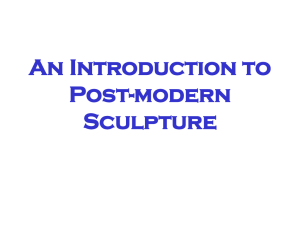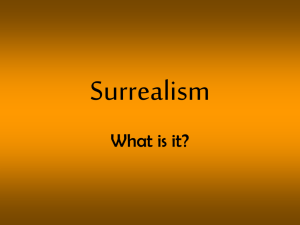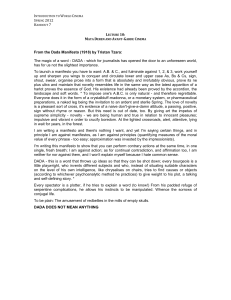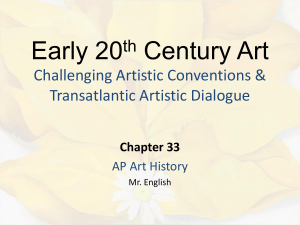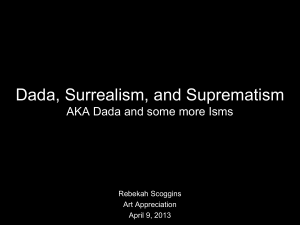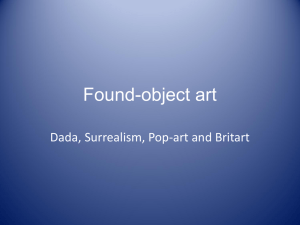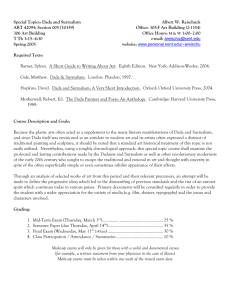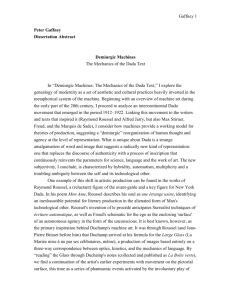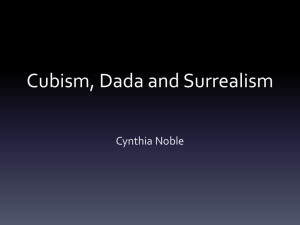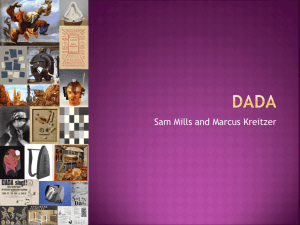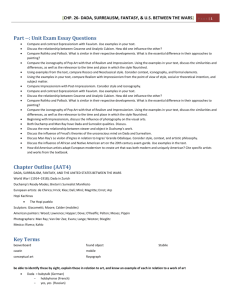Art In the Interwar Period
advertisement
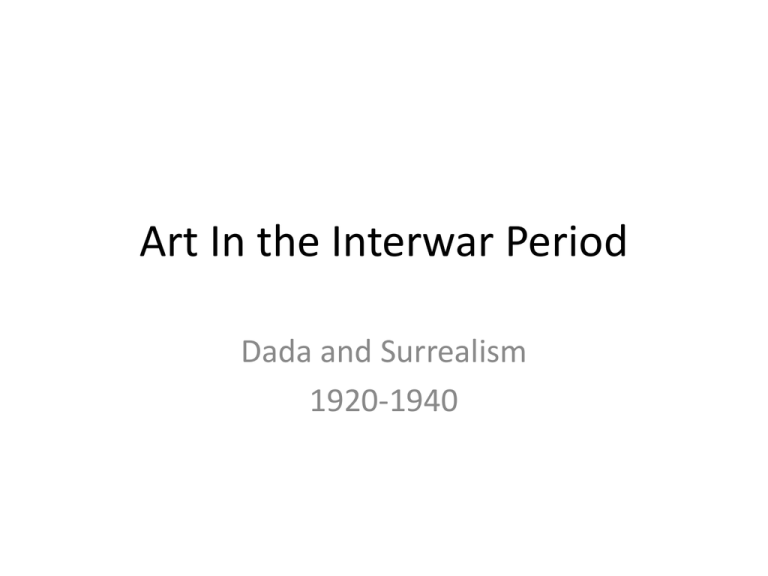
Art In the Interwar Period Dada and Surrealism 1920-1940 Dada -When was it popular? >Toward the end and immediately after WWI -What does Dada mean? >No one is sure, one possible explanation is that Dada is French for Hobby Horse, Dada may also come from Romanian where it translates into, “yeah, yeah” -What genres did Dada encompass? >Dada was mostly a movement in the visual arts (painting, sculpture) but it also included poetry, essays, music, and plays -What characteristics make something Dada? >Dada was a reaction against the status quo of European society—rationality, respectability, conformity, etc. which the Dada-ists blamed for causing the tragedy of WWI Examples of Dada Visual Art -Things to look for: >Randomness-no discernable subject matter >Statements about the subjectivity of artDada artists thought anything could be art, including ordinary objects that people encountered in their daily lives >Incomprehensibility-sometimes the message is that there is no message Hannah Hoch: Cut With the Dada Kitchen Knife Through the Last Weimar Beer Belly Cultural Epoch in Germany Jean Arp: Untitled (Collage With Squares Arranged According to the Laws of Chance) Raoul Haussmann: ABCD Marcel Duchamp: Fountain and Bicycle Wheel Marcel Duchamp: L.H.O.O.Q. Dada Poetry -Usually had no meaning, or no obvious meaning, consisted of words or sounds that sounded interesting to the ear, but might not mean anything Examples of Dada Poetry Hugo Ballgadji beri bimba glandridi lauli lonni cadori Surrealism -When was Surrealism popular? >In the years after WWI until the present day 1920today, although the height of Surrealism was the 1920’s and 30’s -What is/was the philosophy of the Surrealists? >The Surrealists believed in the power of the unconscious over a person in their daily life. Past experiences that you might not remember or even be aware of stayed in your mind and influenced the kind of person you were. Surrealist art reflected this philosophy by portraying strange dream-like images that juxtaposed familiar objects in unfamiliar illogical relationships Salvador Dali: The Persistence of Memory Max Ernst: Elephant Celebes Andre Masson: Automatic Drawing Yves Tanguy: Indefinite Divisibility Renee Magritte: The Treachery of Images Grigori De Chirico: Love Song Recap -The art of the interwar period was heavily influenced by the experiences of WWI >the Dada-ists were so disillusioned by the war that they rejected all previous standards for art >the surrealists attempted to explain the unexplainable tragedy of the war by looking at the subconscious -The art of the interwar period also reflected the general uncertainty of the period
